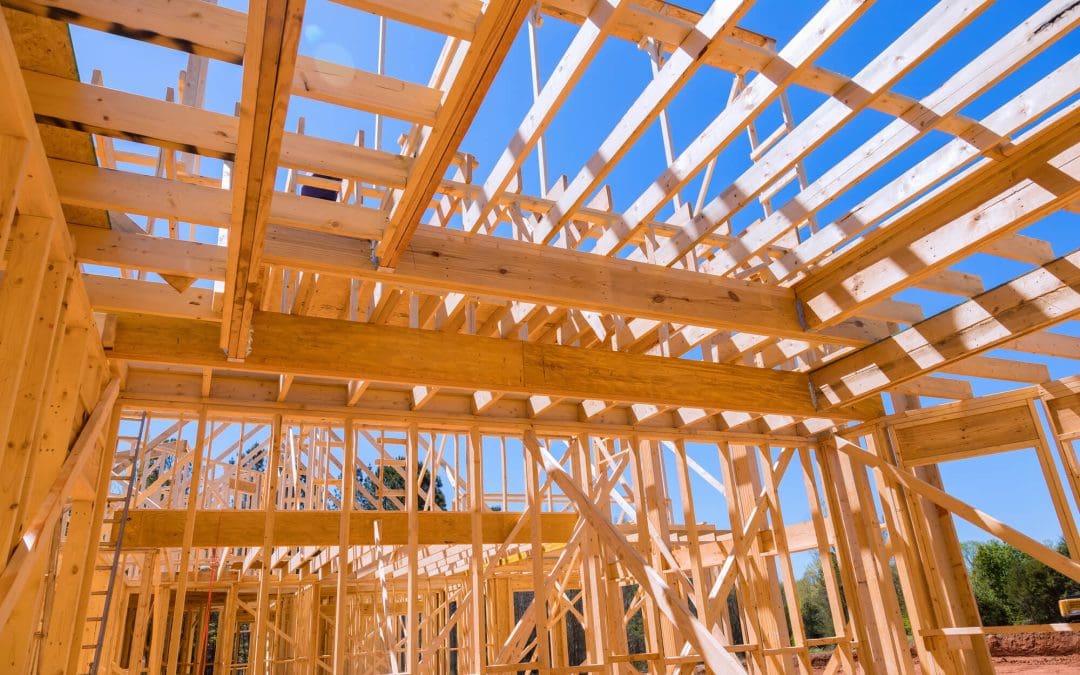New construction homes often promise a worry-free experience with shiny finishes, modern designs, and the allure of everything being brand new. However, even new homes can have hidden defects. These issues can range from minor cosmetic concerns to major structural problems that impact safety and functionality. Here’s a breakdown of some of the most common new construction defects you might encounter and why a home inspection is crucial—even for a brand-new home.
Common New Construction Defects: Structural Defects
Structural issues are among the most serious problems in new construction homes. These include foundation cracks, improperly installed support beams, or framing errors. Structural problems often arise when builders cut corners, use subpar materials, or fail to follow engineering specifications.
One major red flag is uneven floors or walls that are not square. While some of these issues might seem like minor annoyances, they can signal underlying problems with the home’s stability. Catching these issues early can save significant headaches and repair costs.
Plumbing Problems
Plumbing defects in new construction homes are surprisingly common. These can include leaky pipes, improperly installed water heaters, or issues with drainage systems. Poor connections, incorrect slopes in drain lines, and loose fittings often lead to leaks or clogs within months of moving in.
It’s also not unusual to find missing components, such as water shut-off valves or properly installed pressure relief systems. These oversights can damage your home and even create health hazards, like mold growth if water damage occurs.
Electrical Issues
Even in new homes, electrical systems are not immune to defects. Common problems include improperly grounded outlets, overloaded circuits, or mislabeled breaker panels. Sometimes, contractors make errors during wiring installations or fail to meet local building codes, creating risks for short circuits or electrical fires.
Another frequent issue is poorly installed or missing GFCI (ground fault circuit interrupter) outlets, which are required in kitchens, bathrooms, and other wet areas to prevent electrical shocks. An inspection ensures these safety features are present and correctly installed.
HVAC System New Construction Defects
Heating, ventilation, and air conditioning (HVAC) systems are essential for your comfort, but they’re often improperly installed in new builds. Ductwork may be poorly sealed or installed, reducing efficiency and causing uneven temperatures throughout the home.
You might also encounter improperly sized systems. An HVAC unit that’s too small won’t adequately heat or cool your home, while an oversized system may cycle on and off too frequently, leading to unnecessary wear and higher energy costs.
Roofing and Exterior Defects
The roof is one of the most critical parts of your home, yet it’s not uncommon to find defects like improperly installed shingles and poor flashing, If these defects are left unaddressed, water intrusion is a significant concern, leading to extensive damage.
Other exterior issues include poorly sealed windows and doors, improperly installed siding, or grading problems around the home. Poor grading can cause water to pool near the foundation, increasing the risk of leaks or structural issues.
Cosmetic New Construction Defects
While cosmetic defects might not impact your home’s functionality, they can still be frustrating. These include poorly painted walls, uneven flooring, or gaps in trim and molding. Often, these defects are the result of rushed work or a lack of quality control during the final stages of construction.
Why a Home Inspection is Essential
A professional home inspection is your best defense against new construction defects. Builders and contractors may overlook problems, but an independent inspector works solely for you, identifying issues before they become costly repairs. Inspections help ensure your new home meets safety standards and that all systems function as intended.
Investing in a home inspection for your new construction home ensures that everything is truly as perfect as it looks. It’s an essential step to safeguard your investment and start life in your new home with confidence.
FAQs
Why would a new home have defects?
New homes often have defects due to tight construction schedules, human error, or a lack of quality control during the building process. Contractors may also use inexperienced labor or fail to meet building code standards.
Should I get a home inspection even if my new home passed a municipal inspection?
Yes. Municipal inspections focus on meeting minimum code requirements and may not catch all defects. A private home inspection is more thorough, covering areas like functionality, safety, and craftsmanship.
Can I request repairs for defects found during the inspection?
Absolutely. Most builders are willing to address defects identified in an inspection report. Having a detailed report from a licensed inspector gives you leverage to ensure repairs are completed properly.
Carolina HomePro Inspections provides inspections to customers in Charlotte, NC, and the Rock Hill area of South Carolina. Contact us to schedule an inspection.

